Crafting a luxury travel plan to South Korea? Before you dream of spending your lavish staycation in those 5-star hotels, please check your body for visible and uncovered tattoos. Why? Because apparently, some of the premium hotels in South Korea have applied nationwide “No Tattoo” zones and policy. So, what does it mean, and how will this new policy affect your travel? Today we will dive deeper into this latest trend and updates in the controversial “No Tattoo” zones and policy in South Korea.
South Korea Starts Enforcing “No Tattoo” Zones and Policy
South Korea is a beautiful country with impressively unique and meticulous social culture and communities. As there are always new trends to discover in every season, there are also meaningful yet sometimes controversial values behind the development.
Previously, we have discussed the various controversial zones you will likely encounter in most places and venues in Seoul. And if you think that those “No Kids” and “No Pets” zones are debatable enough, South Korea recently found a new policy that raises yet another issue among travelers and the general public: the No Tattoo Zones.
Just recently, various luxury hotels in South Korea, especially Seoul, started enforcing various “No Tattoo” zones and policy within its proximity. Several major 5-star hotels and even famous gyms and spas have announced new guidelines for public areas, explicitly stating “No Tattoos.”
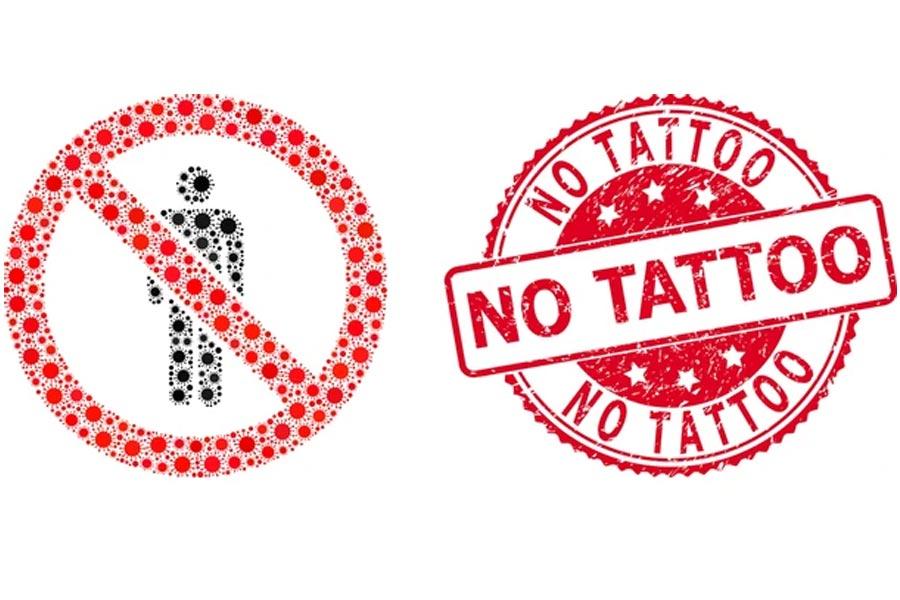
What is “No Tattoo” Zones in South Korea?
So, what are these new “No Tattoo” zones and policy exactly?
The term basically explains itself. “No Tattoo” zones are special areas in places like hotels, gyms, and other public spaces in South Korea where no tattoos are allowed.
Therefore, if you own a tattoo anywhere visible on your body, you cannot enter these zones that apply the “No Tattoo” policy. Or, if you insist, the officials will require you to at least cover your tattoos with long sleeves/pants or skin cover patches.
These specially designated areas began to emerge in certain parts of upscale or family-oriented settings. Reportedly, this new policy aims to prevent the display of large or extravagant tattoos that may cause some customers to feel uncomfortable.
Here’s how they work:
- Hotels and Pools: Many high-end hotels have started implementing “No Tattoo Zone” policies for public facilities like pools and gyms. For instance, some hotels specify that you must cover tattoos above a certain size (e.g., larger than 15 cm). If not, you will be denied access to certain amenities.
- Gyms and Fitness Centers: Some gyms request customers with large tattoos on visible areas like arms and legs to cover them with long-sleeved clothing or other coverings. In more conservative settings, this policy is believed to create an environment that’s perceived as more “family-friendly” or less intimidating to guests.
Apparently, this has caused significant controversy in local and overseas communities.
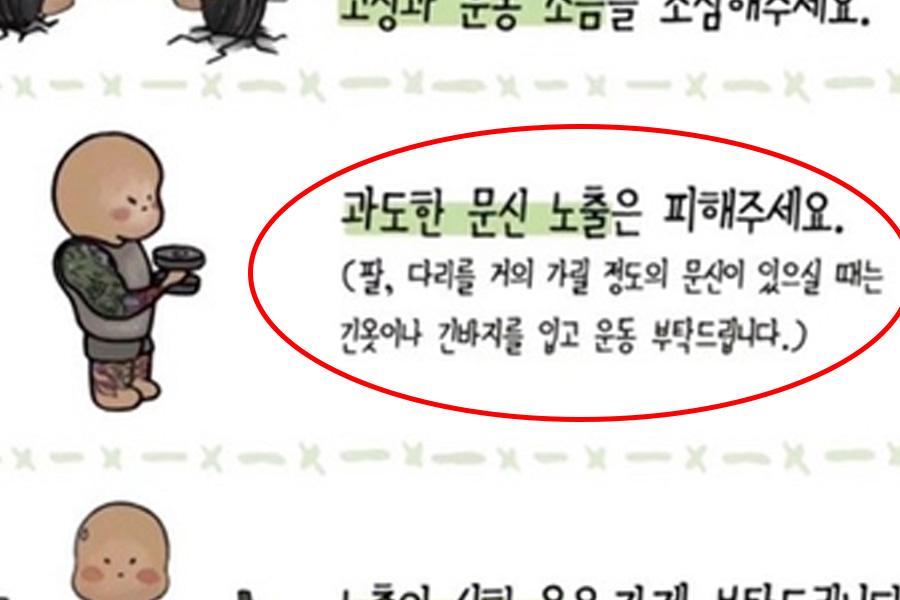
The Controversy Behind the Policy in South Korea
In South Korea itself, the “No Tattoo” zones and policy have become a controversial debate.
Infringement in Freedom of Expression and Personal Choice
Some believe that by applying the policy, all these hotels and venues have infringed on their personal choice and freedom of expression. It all comes back to the previous debate that the zones only discriminate against people with certain beliefs and styles.
While South Korea traditionally leans toward conservative views on tattoos, a growing number of Korean celebrities have proudly showcased their ink, sparking a shift in public perception. These aren’t just tiny, hidden tattoos; many stars sport bold, intricate designs they wear as openly as they would any other fashion statement. Icons like BTS’s Jungkook, actress Han So Hee, and singer Lee Hyori have made headlines by revealing large, detailed tattoos, often on visible areas like their arms, neck, or back.
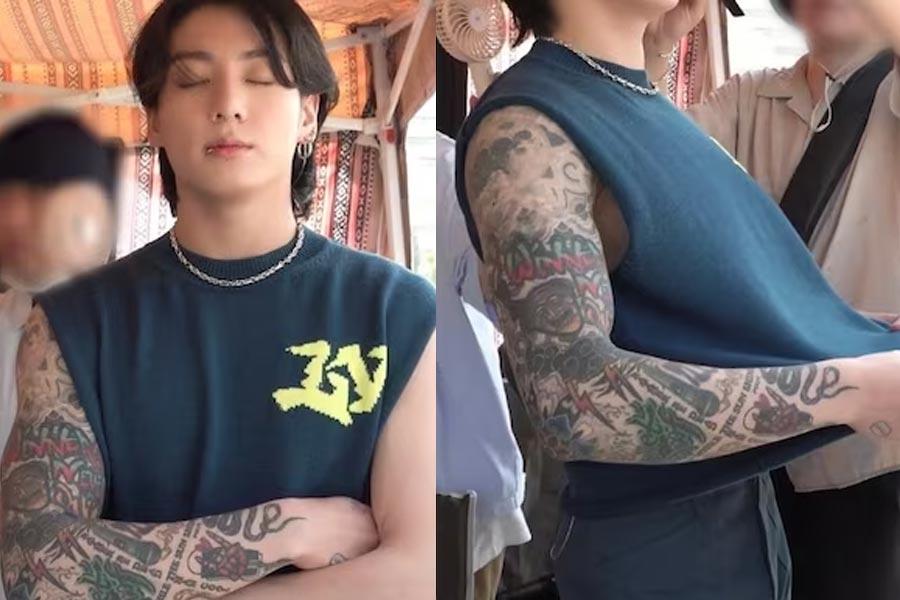
This surge of tattooed celebs influences how South Koreans think about body art. Tattoos, once primarily associated with rebellion or underground culture, are now seen by many as a legitimate form of self-expression.
Some fans admire them as personal artworks, symbols of identity, or even badges of creative freedom. In a society where individuality often meets traditional expectations, these stars are helping carve out a new narrative—one where tattoos now perceived as meaningful personal expressions rather than something to cover up or hide.
Maintaining the Ultimate Services for a Broader Range of Guests
On the other hand, businesses in South Korea with a strong focus on customer-centered service argue that these “No Tattoo” zones and policy are essential for keeping the atmosphere respectful and family-friendly. They see it as a way to create a welcoming space for all guests, including those who may still feel uneasy around large, prominent tattoos.
Despite the growing shift in attitudes toward tattoos, some customers find it uncomfortable or even intimidating to share spaces with heavily tattooed individuals. Some Korean netizens admit that seeing prominent tattoos can make them hesitant to return, viewing it as a distraction from the peaceful ambiance they expect.
So, for these businesses in South Korea, setting “No Tattoo” zones and policy is about balancing inclusivity with comfort for a broader range of guests.
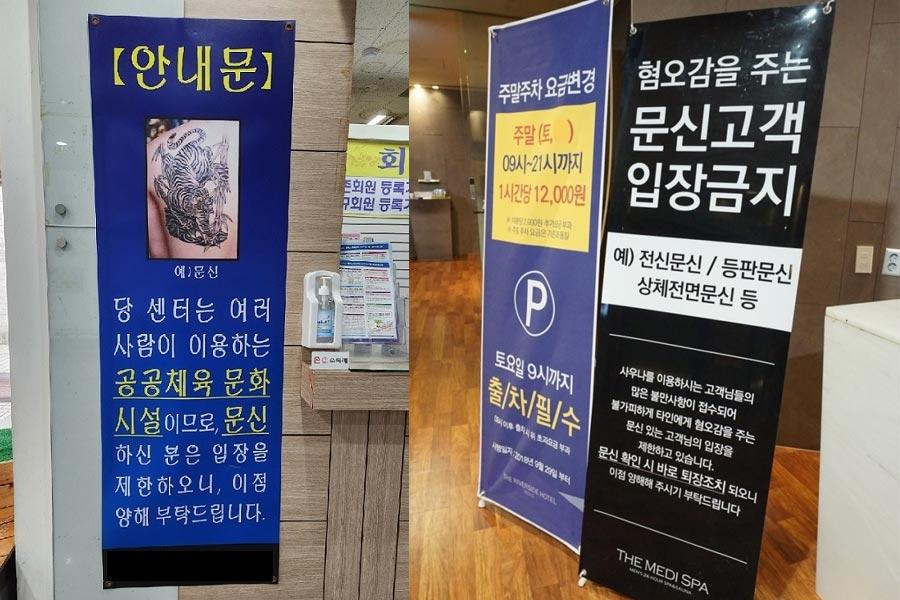
The Best Approach for More Convenient Travel Experience
Now, with the growing controversies of this “No Tattoo” zones and policy in South Korea, what is the best approach to make your travel more convenient?
Actually, not all businesses in Korea have jumped on the “No Tattoo Zone” trend, so don’t worry – you’re not facing restrictions everywhere.
But here’s a tip: before heading to South Korea, take a quick look over your travel itinerary. Also, give the places you’ll be visiting a call (or ask your guide) to check if they have any specific rules on tattoos or the other zones.
At the end of the day, if you happen to miss a sign and get asked to step out, just take a deep breath, smile, and apologize – they’re usually strict but understanding. You could always cover up with a jacket or change into a swimsuit that hides your tattoo if it’s a pool you’re trying to enter.
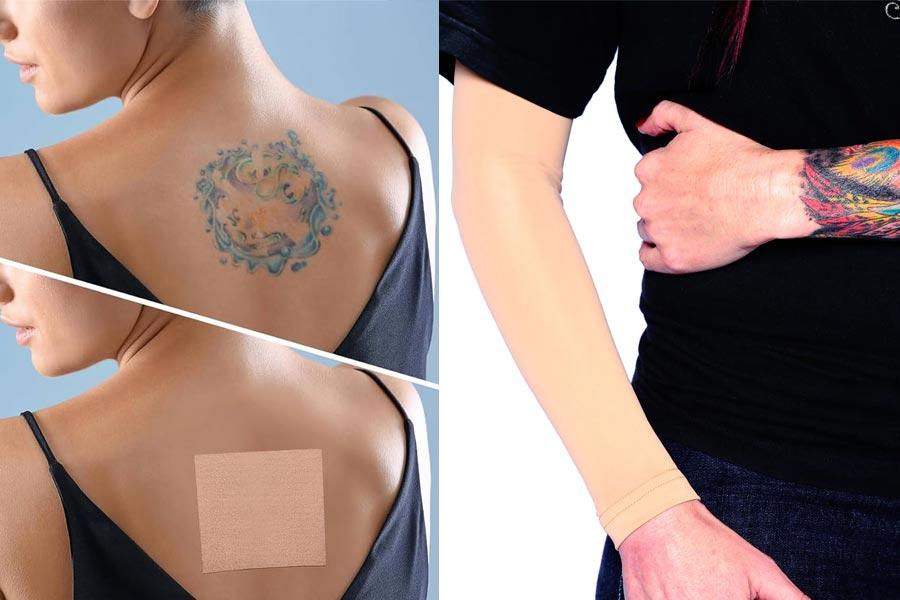
Or, you can simply head to another location! South Korea has countless places to explore, so a single venue’s rule doesn’t have to hold you back from enjoying everything the country offers.
Reported Places with Strict “No Tattoo” Zones and Policy in South Korea
Finally, here are some of the reported travel destinations in South Korea with “No Tattoo” zones and policy.
Fairmont Ambassador Seoul Hotel
If you’re planning to stay at the Fairmont Ambassador Seoul Hotel, please keep your tattoos in mind. That is because this hotel has reportedly banned tattooed guests from entering the Fitness Center area.
Conrad Seoul Hotel
Secondly, Conrad Seoul Hotel has also prohibited customers with extensive tattoos from entering the pool area. Hence, if you have large tattoos, you must conceal them with rash guards or bandages. You can also simply choose to wear a swimming suit with full body coverage.
Grand Josun Busan
Thirdly, if you own tattoos larger than 15 cm (6 inches), the Grand Josun Hotel in Busan will also require you to cover them before entering the Sauna.
Hurshimchung Spa Busan
Meanwhile, the famous Hurshimchung Spa in Busan reportedly limits entry from tattooed customers. If this place is among your travel destinations in South Korea, please recheck again for its tattoo policy.
Related Posts
4,520 total views, 6 views today

















